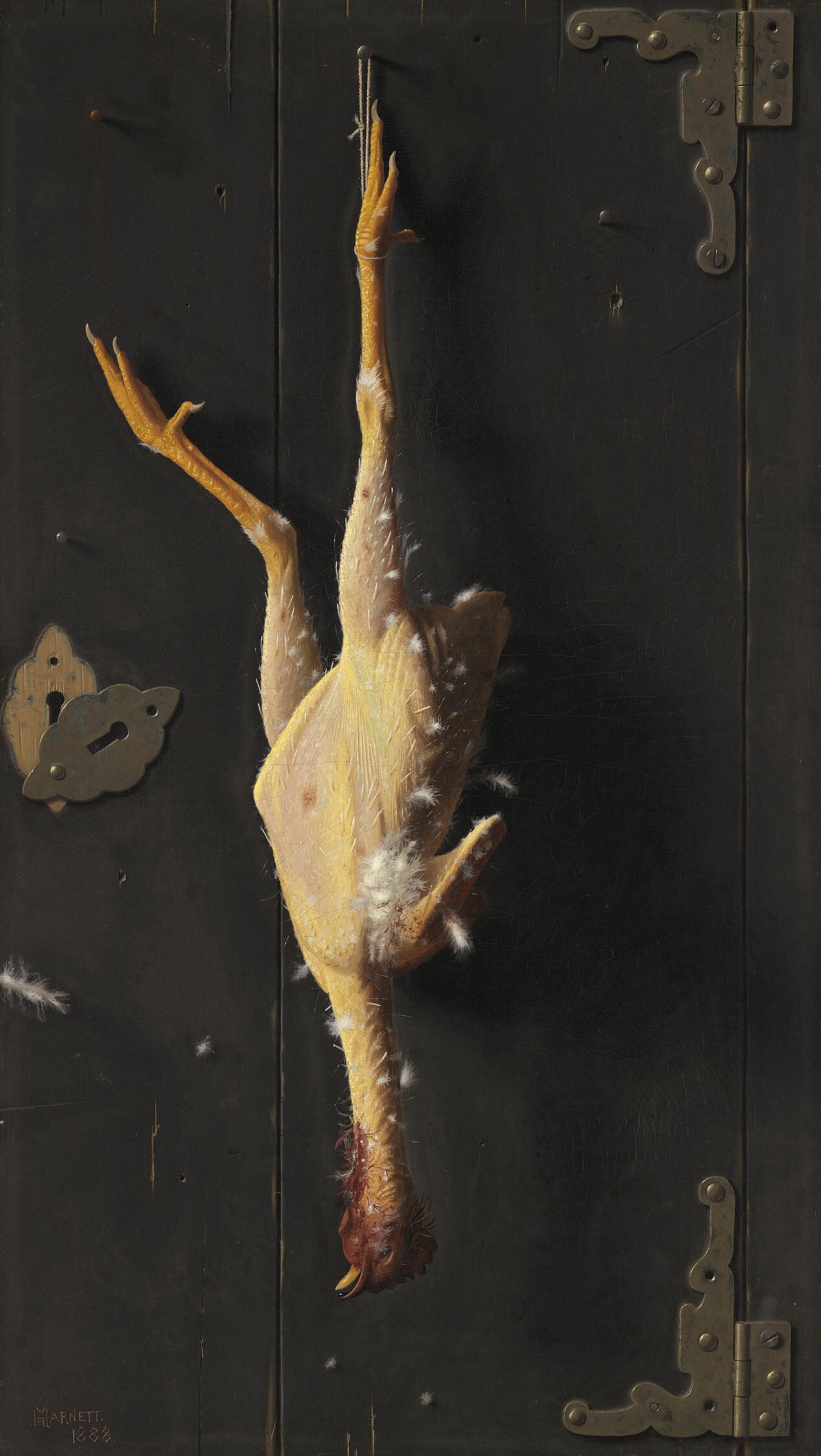Suburbia

William Michael Harnett: For Sunday’s Dinner (1888)
"I said I thought I might be able to live there …"
Though I was raised in the fifties and sixties, I came of age without developing an appreciation for the modern American suburb. We lived in a turn-of-the-century castle, compared to the concrete slab construction passed off as Mid-Century Modern. I disliked the gently curving streets inevitably leading into cul-de-sacs in which those places tended to be built. The streets typically sported what I labeled Tourquise Names, with hyphenations stolen from far-away places, describing nothing similar to the local topography. Mar-a-Lago Lane overlooking high desert terrain. Their cookie-cutter sameness and visual blandness, with each place identical to its next-door neighbors, disturbed something wild within me. I'd always dreaded ending up in some Suburbia somewhere.
Exiles exist to expose us to our worst-case scenarios. It's almost as if they carry an intelligence intended to introduce us to our worst fears so we might finally conquer them. Either that or they possess a wicked sense of humor, preferring to inflict what might be considered practical jokes in other contexts. It was no laughing matter when I started surveying where our third exile had landed us. Denver's Western Suburbs were built in stages. One can easily trace the decade each successive ring of homes was platted. A few older, original homes remain from before the war, but infill has squeezed the properties into rough conformity. Grids bounded by arterials separate the space into what passes for neighborhoods.
As with every American city, successive development rings left behind older blighted ones. Those closest to the city center had begun undergoing gentrification when we arrived. The outermost rings were the newest construction; these contained developments rather than actual neighborhoods. The whole design seemed hostile to my delicate sensibilities, for I'd grown accustomed to living in actual neighborhoods where the houses had been built before the First World War and corners often featured a little store. The more modern replacements required a car to go anywhere. While the older neighborhoods had initially been designed as walkable spaces, the newest ones seemed deliberately hostile to walkers. They centered around shopping centers, which seemed to be the antithesis of personable places.
Our first few weeks in Colorado, spent in The Muse's employer-provided temporary housing, saw me dreading the possibilities. I recognized that this move might leave us closer to home, but it seemed far away again after we'd successfully settled back east. And Denver was never a western city, anyway. Golden, where we ultimately landed, features an arch over its principal downtown street that proclaims to be "Where The West Lives!" It's a gateway city, still relatively far east. It's more like the Great Plains than the Rocky Mountains. The newest suburbs didn't even feature trees. Homes in the older suburbs were well-used, usually needing rewiring and new windows, though some featured mature plantings. We wandered as lonely as clouds, trying to imagine ourselves living in Suburbia. We couldn't.
As I mentioned in the VenueChange installment, we finally stumbled upon a suitable place for this phase of our Exile. It was further removed from town than I'd ever lived before, up on the top of the first tier of foothills above Golden, but it featured trees and views and a few amenities that promised to make our stay at least tolerable. Our search again featured us trying to find the place we'd just left behind for the longest time before the future finally slapped us in the face, and we accepted our fate. It was not a terrible choice. Looking back, we can't imagine getting any luckier. We might have found the only suitable place within twenty miles. It might not be worth mentioning how that happened because it had no cause. We were not especially prescient or cautious. We just followed our preferences until we'd exhausted almost every option. Then, after an utterly exhausting few months and a couple of extensions on the temporary housing, we found ourselves visiting our future. I said I thought I could live there, and The Muse and the realtor went to work. We were moving in a month later, not quite in Surburbia, but considerably closer to home.
©2024 by David A. Schmaltz - all rights reserved


